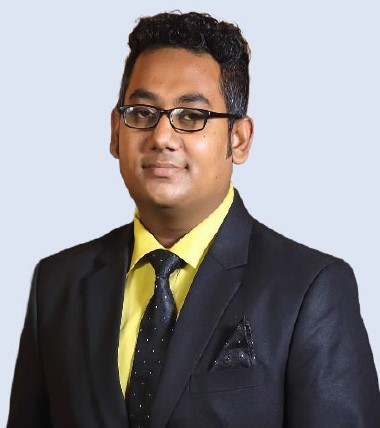Electronic Design Automation for Next-Generation In-Memory Computing Systems
The exponential growth in the availability of digital data has powered the emergence of data-driven applications like large language models, computer vision, and digital twin. These applications have incredibly high computing demands that exceed the capabilities of today's high-performance computing systems. Unfortunately, the limitations of scaling silicon technology, and the von-Neumann bottleneck suggest that these demands cannot be addressed through traditional means. To address the pressing challenge of computational scalability and efficiency, new computing paradigms are being explored. One promising solution to this computational challenge is to perform in-memory computation using emerging non-volatile memory (NVM) devices. This approach enables energy efficient execution of computationally expensive operations and promises substantial improvements in throughput. However, the NVM technology is still in its infancy stage. To fully unleash the promises of in-memory computation systems, we need novel electronic design automation (EDA) based solutions tailored to data-intensive applications. In this talk, I will discuss the role EDA can play to close the application-to-devices gap in the in-memory computational stack. In the first part of the talk, I will discuss different in-memory computing styles in analog and digital domains. In the second part of the talk, I will present my representative projects that are focused on improving the scalability, energy efficiency, and robustness of different in-memory computing paradigms. In the final part of the talk, I will discuss future research directions for designing next-generation in-memory computing systems.
Date and Time
Location
Hosts
Registration
- Date: 31 Jan 2024
- Time: 05:00 PM UTC to 06:00 PM UTC
-
 Add Event to Calendar
Add Event to Calendar
- 115 Library Drive
- Rochester, Michigan
- United States 48326
- Building: Engineering Center
- Room Number: EC 550
Speakers
 Muhammad Rashed of University of Central Florida
Muhammad Rashed of University of Central Florida
Electronic Design Automation for Next-Generation In-Memory Computing Systems
The exponential growth in the availability of digital data has powered the emergence of data-driven applications like large language models, computer vision, and digital twin. These applications have incredibly high computing demands that exceed the capabilities of today's high-performance computing systems. Unfortunately, the limitations of scaling silicon technology, and the von-Neumann bottleneck suggest that these demands cannot be addressed through traditional means. To address the pressing challenge of computational scalability and efficiency, new computing paradigms are being explored. One promising solution to this computational challenge is to perform in-memory computation using emerging non-volatile memory (NVM) devices. This approach enables energy efficient execution of computationally expensive operations and promises substantial improvements in throughput. However, the NVM technology is still in its infancy stage. To fully unleash the promises of in-memory computation systems, we need novel electronic design automation (EDA) based solutions tailored to data-intensive applications. In this talk, I will discuss the role EDA can play to close the application-to-devices gap in the in-memory computational stack. In the first part of the talk, I will discuss different in-memory computing styles in analog and digital domains. In the second part of the talk, I will present my representative projects that are focused on improving the scalability, energy efficiency, and robustness of different in-memory computing paradigms. In the final part of the talk, I will discuss future research directions for designing next-generation in-memory computing systems.
Biography:
Muhammad Rashed is a Ph.D candidate in Computer Engineering at the University of Central Florida. Rashed received his B.S. degree in Electrical and Electronic Engineering from Bangladesh University of Engineering and Technology (BUET). His research interests include EDA from emerging computing paradigms, computer aided design, artificial intelligence, and computer architecture. Rashed has published his research findings in flagship electronic design automation and computer architecture venues such as TCAD, DAC, MICRO, ICCAD and DATE. Rashed has received a nomination for IEEE/ACM William J. McCalla ICCAD Best Paper Award at the 2022 International Conference on Computer-Aided Design (ICCAD). He has won the Best Research Video Award as a young fellow at the 2021 Design Automation Conference (DAC). Rashed has also received several fellowships from UC.
Oakland University CSE Research Talk
